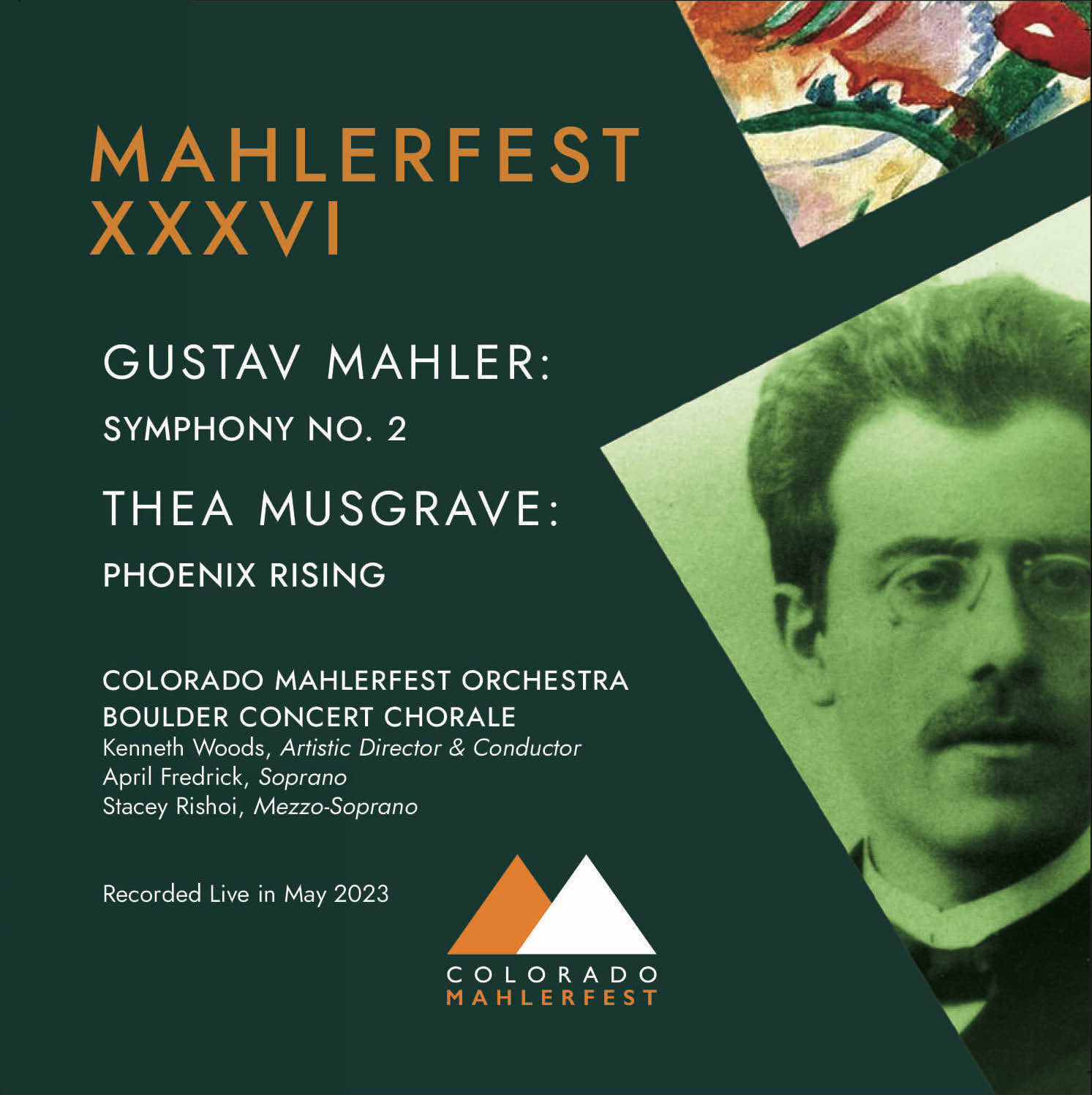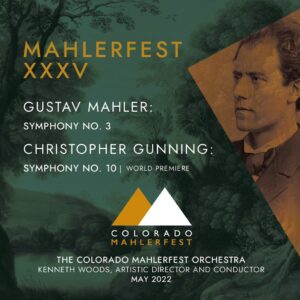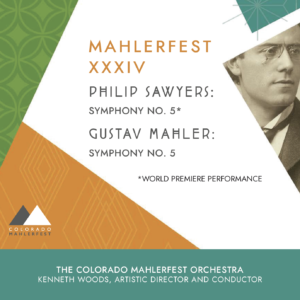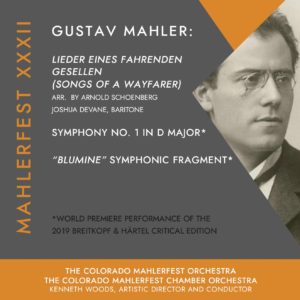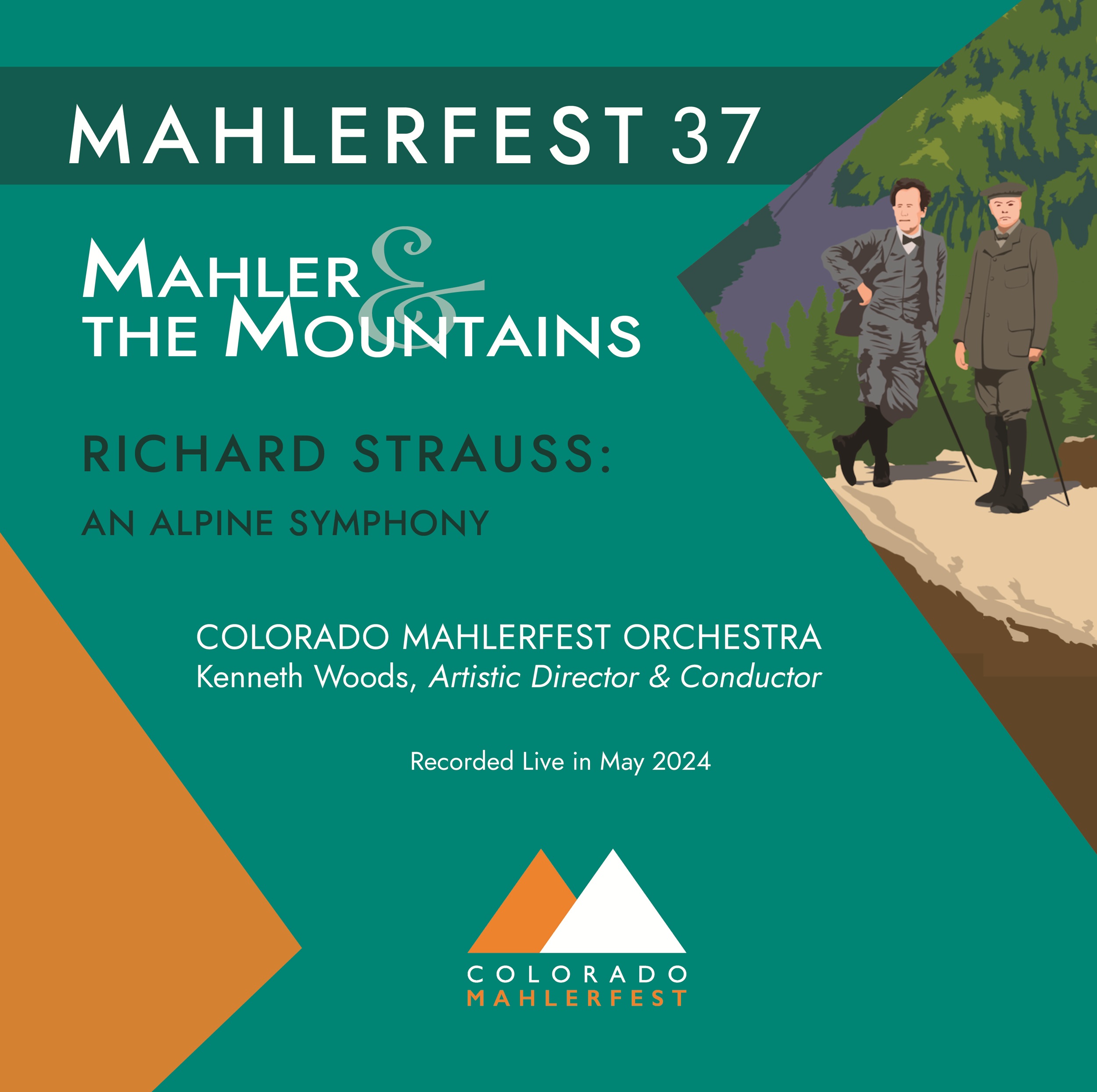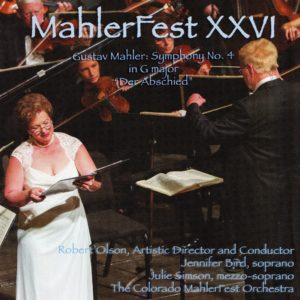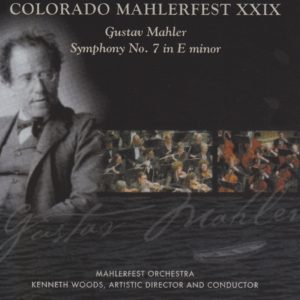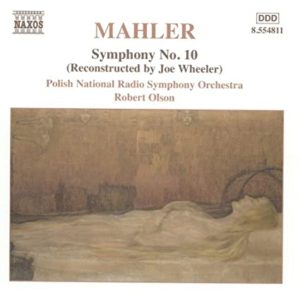Mahler Symphony No. 2 and Musgrave “Phoenix Rising” | MahlerFest XXXVI (2023) (Double Disc)
$20.00
Description
COLORADO MAHLERFEST XXXVI
“Rise Again” – May 17-21, 2023
DISC 1
1. Thea Musgrave – Phoenix Rising (19:23)
Gustav Mahler Symphony No. 2
2. I. Allegro maestoso (23:02)
Disc 2
1. II. Andante moderato (10:18)
2. III. In ruhig fließender Bewegung (10:31)
3. IV. Urlicht (5:11)
4. V. Im Tempo des Scherzos (35:40)
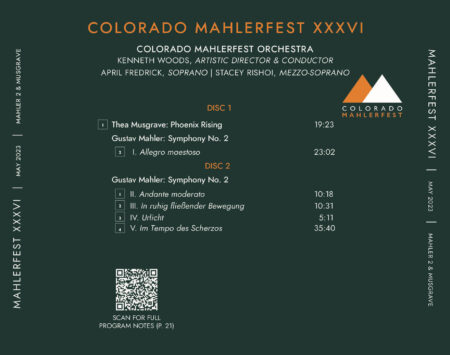
Kenneth Woods, conductor
April Fredrick, soprano
Stacey Rishoi, mezzo-soprano
Boulder Concert Chorale – Dr. Vicki Burrichter, Artistic Director
Colorado MahlerFest Orchestra
Full festival program book avaliable here.
Recorded by Jonathan Galle
Editing and mastering by Tim Burton
RECORDED IN CONCERT May 21, 2023 | MACKY AUDITORIUM
BOULDER, COLORADO | © 2023 Colorado MahlerFest All Rights Reserved
Please note – for environmental reasons, this item is not shrink-wrapped.
This album is also available as a mp3 and hifi digital download via Bandcamp.
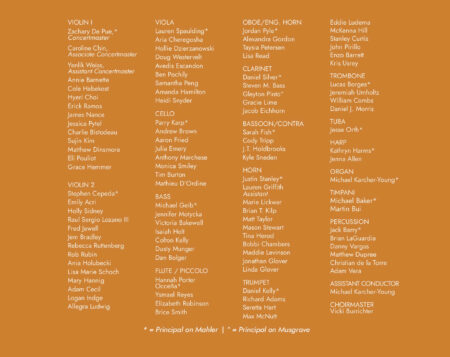 “Woods’ performance of Mahler 2 left no doubt that he is a major Mahler interpreter. I have heard cleaner performance of this work, but never one more convincing. The symphony suffered a long and tortuous gestation lasting some six years. The first movement is a funeral march, the second a Landler of sorts, the third a kaleidoscopic scherzo. After that, the piece goes its own way, with agonized words by Klopstock and Mahler, an opening of graves, a march of the dead, and a final paean of transcendence.
“Woods’ performance of Mahler 2 left no doubt that he is a major Mahler interpreter. I have heard cleaner performance of this work, but never one more convincing. The symphony suffered a long and tortuous gestation lasting some six years. The first movement is a funeral march, the second a Landler of sorts, the third a kaleidoscopic scherzo. After that, the piece goes its own way, with agonized words by Klopstock and Mahler, an opening of graves, a march of the dead, and a final paean of transcendence.
This blazing sequence risks shattering under pressure into disconnected shards of brilliance. The opening march movement alone, some twenty minutes long, combines grief and fury with soaring intimations of serenity. Mahler asks that the fundamental speed change more than two dozen times. Woods’ reading here embraced an exceptional range of mood and tempo. But a mighty Ur-pulse was sustained. The movement ends with a wasted tread, then a torrential scalar descent, then two pizzicato chords. Reading a sharply accented staccato triplet, Woods’ violas (an exceptional group) more than honored the score; they enacted the dirge’s culminating fatigue. The play of tempo in these closing measures was so keenly gauged that the silences told loudly and precisely. And so it was in the subsequent movements, with their many critical pauses; the trajectory remained organic. Midway through the pivotal mezzo-soprano solo – right at “the loving God will grant me light” — the Boulder sun emerged, streaming through the high cathedral windows. An uncanny moment.” Joseph Horowitz, Unanswered Question

